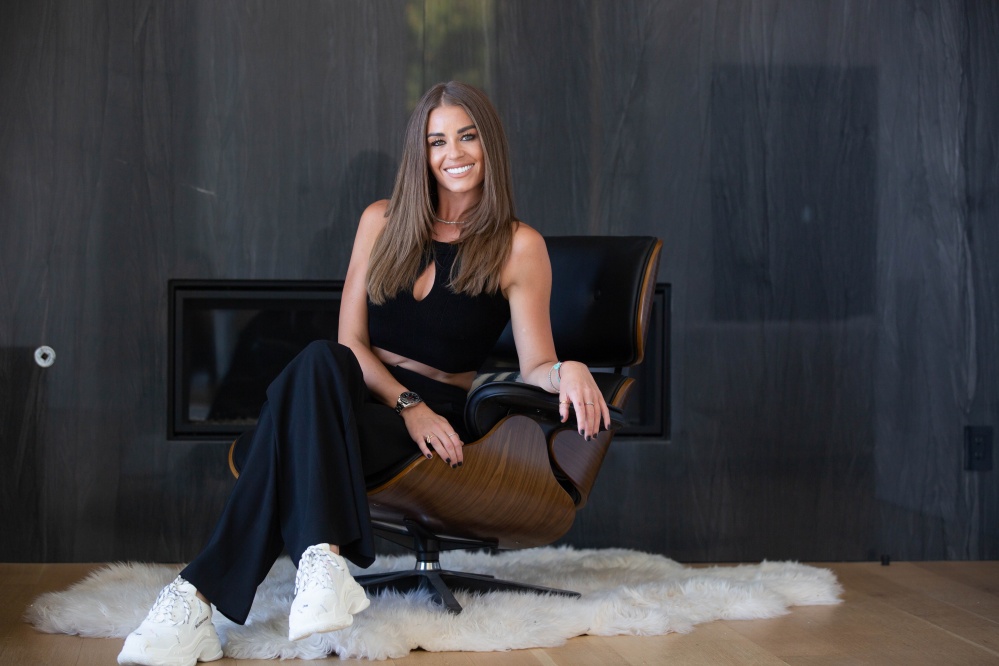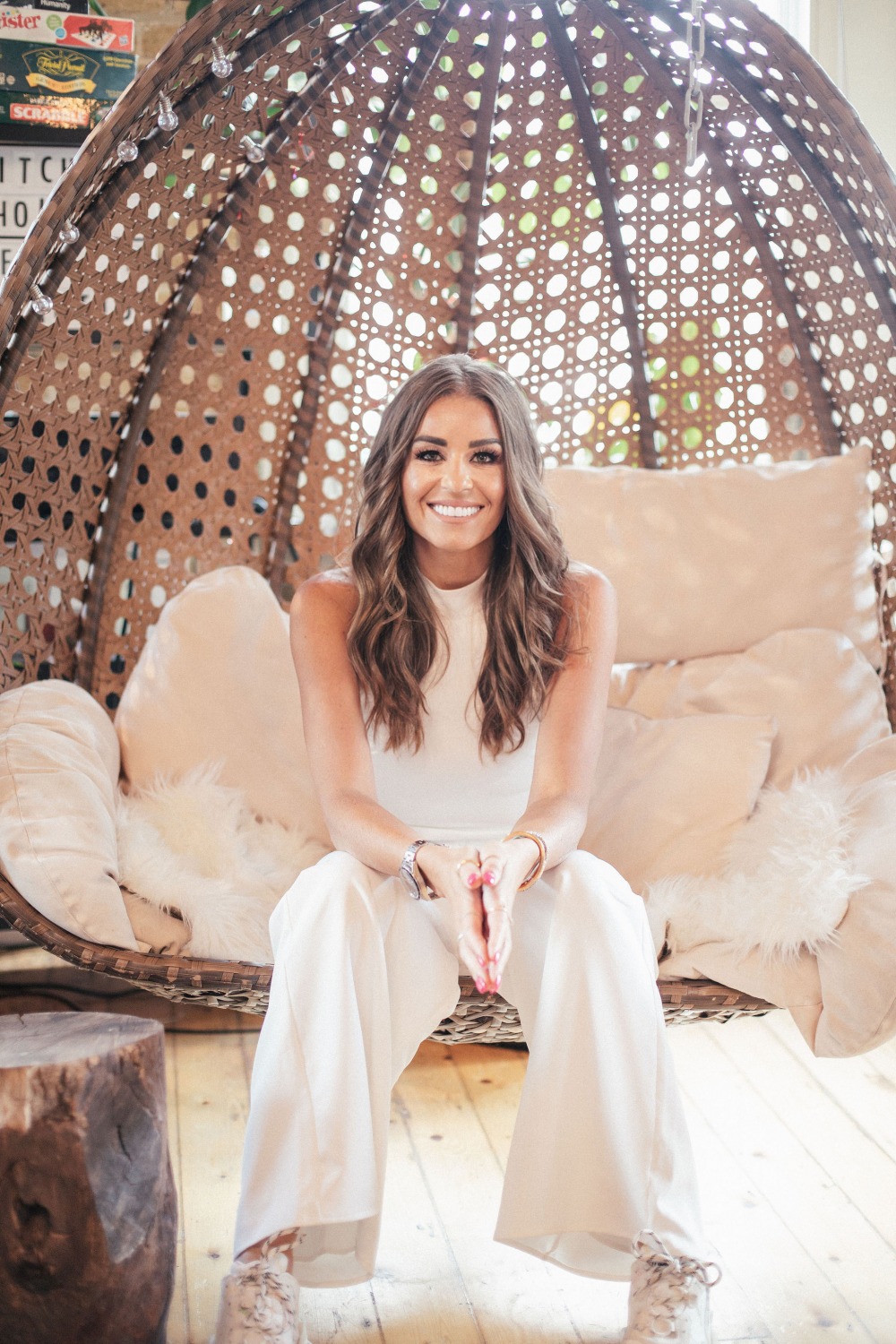Meet World-Renowned Entrepreneur and ‘Queen of Happiness’ from Newcastle

Positive psychologist Niyc Pidgeon has been recognised for her work with women around the world, including being celebrated by Sir Richard Branson
Tell us a bit about yourself and your background.
I’m originally from Newcastle in the North East of England and now live in Beverley Hills, Los Angeles, but I did start all of my businesses and did all of my study back in the UK. My background is as a positive psychologist so I have my masters in positive psychology and I’ve also been an entrepreneur as well as a psychologist for the last… goodness, 13 years now, which makes me feel a bit old.
What does it mean to be a positive psychologist?
Positive psychology is the science of happiness and success, and we look at how people, businesses and communities can thrive. We literally study what it is that impacts and improves our wellbeing so we know what interventions and tools we can use so that everybody can live with a greater sense of joy and more personal power. The science was developed in the year 2000 and it was kind of developed as a counter balance to usual psychology, because psychology as usual mainly focused on disorder and disease and what goes wrong with people, instead of what goes right. So that’s really the fundamental difference with positive psychology, we focus on strengths, what it is that’s going well, and how we can really maximise that and create more of it.
Read More: How Four Rugby Players Became Newcastle Beer Brewers

Why did you decide to get into the science of happiness?
Well… I was originally supposed to be mechanical and automotive engineer and received scholarship places at the UK’s top universities to study to work in the pit lane in Formula 1 racing. However my complete career swerve came from a conversation I had with my then partner who was a cricketer and he was telling me about the psychology session he had. He was told ‘when you’re standing on the field and you’ve got the bat in your hand looking for the ball coming towards you, what I want you to do is not focus on the fielders that are on the field but focus on the gaps in between the fielders instead’ and that simple analogy literally hit me like a ton of bricks, because it taught me that you need to search for the opportunities and look for the gaps instead of always focusing on what’s going wrong or focusing on the problems.
So that gave me a huge mindset shift in my teenage years and I actually cancelled my mechanical engineering degree and I went through clearing to study psychology with sport instead. Then after that I went on to study my masters degree and I found positive psychology through a guest lecturer who had come into Northumbria University, and then went on to study the masters in Positive Psychology at the University of East London. So it’s been a very step-by-step intuitive journey for me. I didn’t know that I wanted to be a psychologist from when I was a kid but I feel like I did very well in those teenage years to kind of listen to my intuition and follow that inspiration.
Read More: Teesside Café Owner Launches Gluten-Free and Vegan Pasta Supported By Local Olympian
How do you use this on a daily basis?
So for me positive psychology is really ingrained and integrated in everything I do. One of the things that I’ve realised and I also teach is that when you know positive psychology you realise that it’s not just a science, it’s not just tools or interventions, it’s actually a way of living, and once you know it you can never unlearn it. I love to have my day start in a really positive way so the first thing I think is a really grateful thought as soon as I wake up. I literally say to myself ‘thank you, thank you, thank you, thank you for this day, I am grateful in every possible way’, then I will do a meditation and also breath work.
Positive psychology teaches these tools, so it teaches gratitude and the power of it, it teaches meditation and why it works, and it teaches breath work as well but what is different about positive psychology is it gives you the evidence and underpinning for why they work, how they work and in what way as well. So I always start my day like that. I’ll always move my body because when you move your body you move your mood, so for you that might just look like going out for a walk, it might look like doing some actual exercise or going to the gym, or it might just look like dancing around the kitchen with your kids. So I love to have micro interventions all the way through my day. The way I apply it through my business and my coaching clients, but also within other relationships as well whether it’s friends or family, I love to ask them the question ‘what’s been going well for you?’. It’s very normal to get together to see someone and complain about the weather or what’s been going on at work but instead asking the question what’s been going well opens up a really gorgeous, positive conversation focused on strength and celebration instead.
What are your top tips to help people live more joyfully going into 2023?
I think there’s some really powerful tools we can use to have a more positive outlook going into the new year. One of the practices I love is taking the gratitude practice a little bit further and a little bit deeper and it’s called a gratitude letter. You write a letter to someone who you’ve never properly thanked so that could be someone that’s still with us or someone that’s passed, it could be an old school teacher or a friend or a family member. Just take 20 minutes and write a letter to that person to thank them for all of the things that you’re grateful for. That tool has been known to boost our wellbeing for up to a month so it’s a really, really powerful but simple tool that you can do in 20 minutes and it’s one that’s guaranteed to get you crying.
I think as well getting intentional and making a positivity plan for yourself. You can write down a list of all of the things that bring you joy and then commit for 2023 to bring more of those things into your life. So what that might look like is actually setting a time each week to look at your list, let’s say Sunday night, looking at your joy list and then you’re going to look at your week ahead and ask yourself from that list of things that bring you joy, which ones are you going to include for your week ahead – and actually schedule them to make sure you do them. It’s really easy to forget what brings us joy and that means we also forget to do it.
Also with these positivity boosters you can experience more joy within your day because as well as actually getting to experience them, what we see from positive psychology is that when you have something to look forward to in the future, that anticipation of the happiness or the joy that you’re going to feel and experience can actually make us feel happier in the moment right now too.
Read More: Dr Maurice Duffy: How to Turn Your New Year's Resolutions into Habits
What do you love most about the North East when you’re here?
Oh my goodness! I actually just left a couple of weeks ago and it’s so nice, I love how friendly everyone is and as soon as I get into a taxi I have a good chat with the driver. I love seeing my niece and nephew Olivia and Alfie, that’s really special. I also always stay on the Quayside and I just love going for a walk. Every single day when I’m back I go for a walk on the Quayside, get some steps in and just appreciate the beauty of Newcastle and that area with all of the bridges and the lights. It just feels really special.
An item you couldn’t live without.
My infra-red PEMF mat
Biggest inspiration.
Everyday life - there is so much perspective available for us when we choose to be aware of it.
Food guilty pleasure.
Thai green curry, coconut rice; apple crumble and ice cream for dessert.
Advice you’d give to your younger self.
Be patient – you'll enjoy the journey so much more.
New Years resolution for 2023.
Finish my next book, learn to fly, and take more phone-free down time.







